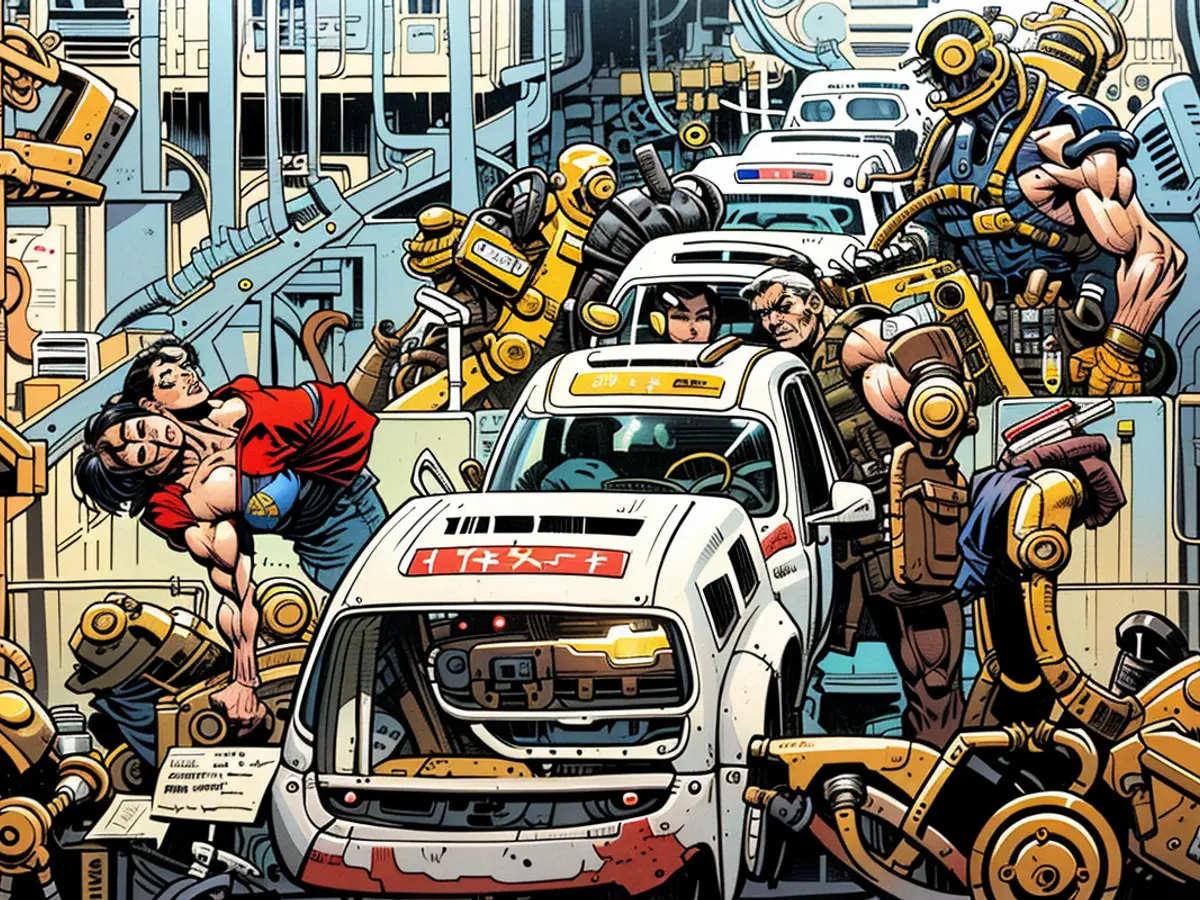EU and China struggle to resolve subsidy dispute
The Chinese government in Beijing is unwilling to find common ground with the provisional tariffs of the EU on Chinese electric vehicles. High-ranking officials from both sides are seeking a way out of the escalating trade conflict, but the talks are running slowly.
The talks between the EU and China over the new tariffs for electric vehicles from China have reportedly been rather slow. According to participants, both sides are currently trying to understand whether China is indeed subsidizing its automakers. The EU accuses the Chinese of this and justifies the tariffs against BYD and others. The fact that the Chinese government has even entered into negotiations is seen as a positive sign by experts.
Starting from Friday, Chinese importers must pay provisional tariffs, which, after a short-term, light correction by the EU Commission, can reach up to 37.6 percent - in addition to the ten percent tariff that applies to car imports by default. Initially, importers only need to provide a bank guarantee for the corresponding amount. The actual sum would only be collected after a final decision in the fall. While the tariffs are indirectly paid in this way, the negotiations with the Chinese government are to continue.
Vice-President of the EU Commission Valdis Dombrovskis took up the negotiations on June 22 with a meeting with Chinese Trade Minister Wang Wentao in Beijing. Since then, the talks have been continued at the highest level. The fact that the negotiations are taking place indicates that there may be possibilities for a solution, according to participants.
Similarly, Federal Minister of Economics Robert Habeck expressed himself in a similar way: At least they are talking to each other again, Habeck said during a China visit in the ARD. China is interested in a solution, as perceived. And: China has good reasons to be interested in a solution because the access to many other markets - for example, the US - for Chinese electric vehicles is already largely closed. Europe is therefore the last major open market for export-hungry automakers from the People's Republic.
However, the talks are not making progress easily. It appears that the issue of Chinese subsidies is the focus at this stage. The Europeans argue: The Chinese made their cars unfairly cheap with subsidies. The EU wants to prevent similar things from happening on the automotive market as in the market for solar panels, which China has almost completely taken over. Therefore, the EU wants to absorb the subsidy advantage through tariffs and sees itself in compliance with international trade law.
Publicly, Beijing has so far denied the subsidy allegations. In the negotiations, EU diplomats are now going through each subsidy they have found - it's about preferential access for Chinese companies to raw materials, cheap loans from state banks, and subsidized land for automakers from the public sector.
In the negotiations, the Chinese side should respond more differently to the accusations without admitting them: Some of the mentioned subsidies would still be contested, while only denied that they have the harmful effect that the EU alleges. Solutions should only be discussed once both parties have understood each other's views on the subsidies. In other words, compromises are not being discussed yet. And from the EU Commission's perspective, only solutions that eliminate the subsidy issues they complain about are valid.
This would exclude some circulating proposals, such as one attributed to German Chancellor Olaf Scholz. According to this idea, both trading partners would impose 15% tariffs on auto exports, meaning European auto tariffs would only slightly increase, while Chinese tariffs would decrease slightly from 25%. For the EU Commission, this is not an option. The European side is also unwilling to agree to a larger trade package that includes products beyond autos.
Beijing, in turn, complained about European tariffs on allegedly unfair EU imports into the country and initiated an investigation into possible unfairly discounted European pork in the country.
Brussels, however, is still unwilling to engage in a trade deal. Swine farms instead of cars would not be a model, as the Europeans' proposal implies that the Chinese should withdraw the alleged subsidies. The Chinese have made one concession: Subsidies once granted should not be retroactively adjusted.
The negotiators have four months left before the final tariffs are to be decided for five years. In the coming two weeks, there will be a so-called consultation procedure during which EU member states can still object to the application of tariffs. However, despite the German federal government's opposition to tariffs, it is considered very unlikely that this will happen - there are enough tariff supporters in the EU.
The EU continues to accuse BYD and other Chinese automakers of receiving unfair subsidies, justifying the proposed punitive tariffs. Despite this, the Chinese government has agreed to engage in negotiations to tackle this issue in Brussels.
The Chinese government's willingness to negotiate in Brussels over the subsidy allegations could potentially lead to the removal of the proposed punitive tariffs on their economy cars, such as those manufactured by BYD.








